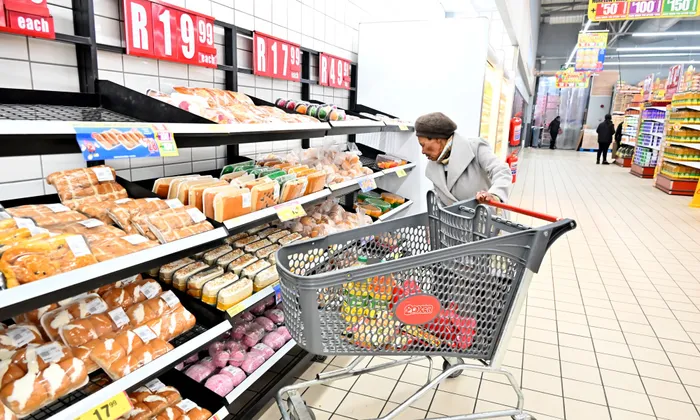
Food inflation continues to decrease despite the headline consumer inflation rate increasing for the second month in a row to 3.6% in October, from 3.4% in September. Experts have welcomed the decline in food inflation
Image: Ayanda Ndamane / Independent Newspapers
South Africa’s food inflation continued its downward trend in October, easing for the third consecutive month even as overall consumer inflation edged higher.
Statistics SA reported last week that food price inflation slowed to 3.9% in October, down from 4.4% in September, while headline inflation rose to 3.6% from 3.4%.
Economists and civil society organisations have welcomed the decline, saying it offers much-needed relief to households squeezed by high living costs.
Wandile Sihlobo, chief Economist at the Agricultural Business Chamber of South Africa, said the slowdown was driven largely by lower prices for fruit and nuts, vegetables, meat, sugar, confectionery and desserts.
“The ample supplies, combined with the base effects, are what contribute to the easing of price inflation in these products," he said.
"Moreover, while modestly up from the previous reading, the cereal products inflation also remains relatively low on the back of the ample grain harvest in the country.”
South Africa expects a strong 2024/25 summer grains and oilseeds crop, estimated at 20.08 million tons, up 30% year-on-year.
Sihlobo said this, together with robust fruit and vegetable production, should continue to soften food price pressures in the coming months.
Sihlobo noted, however, that the risk of foot-and-mouth disease remains a challenge for farmers. While such outbreaks typically depress domestic meat prices by closing export markets, this year saw the opposite due to panic buying and strong consumer demand.
"Initially, panic buying driven by retailers' announcements, rather than a product shortage, was the main driver of meat prices, combined with buoyant consumer demand. We now see an easing of these upward price pressures,” he said.
The Minister of Agriculture John Steenhuisen also expressed optimism that South Africa's consumer food price inflation will continue to moderate.
"The benefits of lower grain prices, ample fruit and vegetable supplies, and potentially easing meat prices will continue to be the major drivers of the deceleration," he said. "Still, there is some uncertainty around meat, as foot-and-mouth disease remains a challenge.”
Mervyn Abrahams, director at the Pietermaritzburg Economic Justice and Dignity Group (PMBEJD), said the easing of food inflation is reflected in the organisation’s Household Affordability Index, which showed price drops in 11 food items, including maize meal, chicken livers, and cabbage.
"Any report backed by evidence to prove that the food inflation level has gone down over the past months is welcomed, especially in this economy where the living costs have been for those in the middle-income bracket as well as those in the low-income bracket,” he said.
However, he warned that rising headline inflation, driven in part by higher water and electricity costs, continues to strain households. “
“It is still worrying that headline inflation has increased it means that while some food items may record decreases in prices, the general living costs including water and electricity remain, which are crucial in the preparation of food," he said.
"Because water and electricity are part of the inputs in the food ecosystem, this could influence the pricing of food items, which would be very bad as it would hurt the most vulnerable households in our communities.”
Siyanda Baduza, a researcher at the Institute for Economic Justice, said lower food inflation offers some relief but does not solve the affordability crisis facing low-income households.
“However, it is still, of course, not enough to ensure adequacy for most recipients, as the two largest grants in the country - the Child Support Grant and the Social Relief of Distress Grant - are still below the food poverty line. Those need to increase, much more than inflation, to get there,” he said.
Evashnee Naidu, KwaZulu-Natal regional manager at Black Sash, said the ongoing decline in food inflation is encouraging for the millions of households relying on essential food baskets.
“Most of these items form part of the basic basket purchased by the most impoverished and economically hardest-hit households," Naidu said.
"This ongoing relief to households will hopefully enhance food security and allow families to have greater purchasing power for nutritious food items.”
BUSINESS REPORT